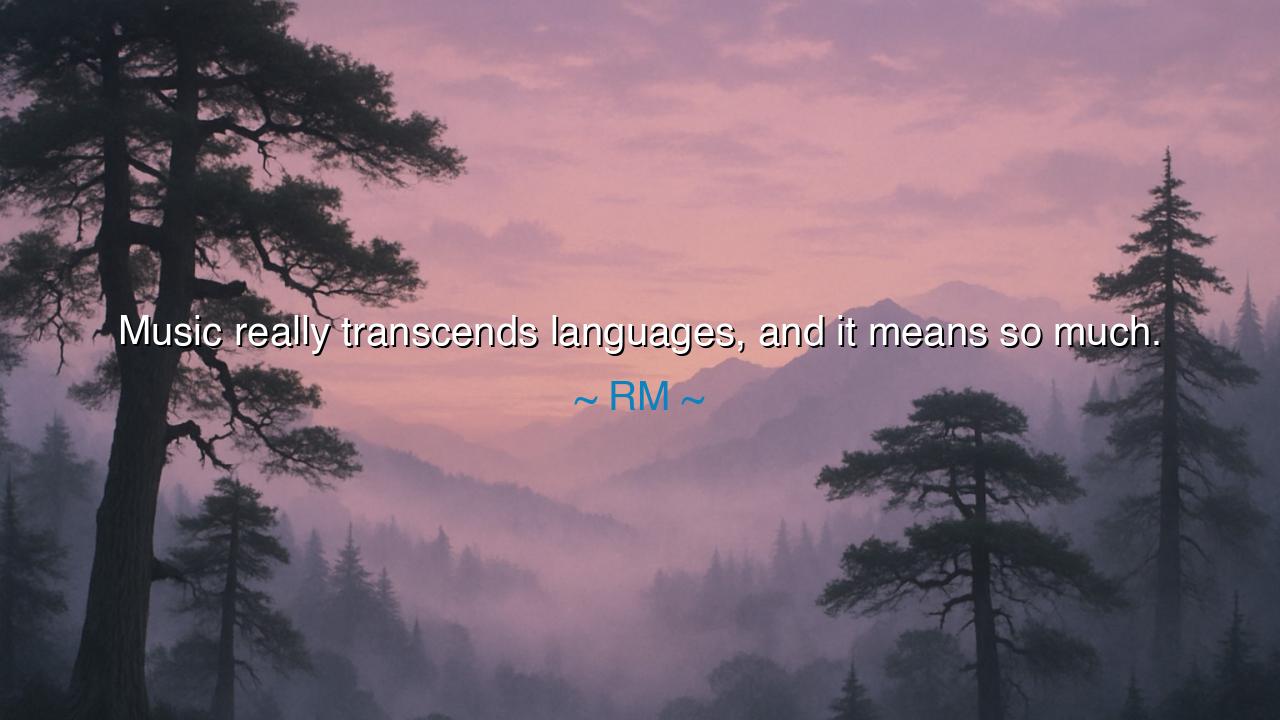
Music really transcends languages, and it means so much.






“Music really transcends languages, and it means so much.” Thus spoke RM, leader of voices that have carried across the earth, whose words shine with an ancient and enduring truth: that while tongues may differ and nations may divide, the power of music flows beyond barriers, binding hearts in a single rhythm. For where words falter, melody speaks; where speech divides, harmony unites.
The ancients would have said: “The lyre speaks to gods and men alike, for its tongue is the soul itself.” Long before nations were carved and alphabets formed, men beat drums, sang in caves, and carved flutes from bone. These sounds needed no translation; their message was feeling, their meaning was connection. RM’s insight is not new, but it is a reminder of what humanity too often forgets—that music is the oldest language, a bridge spanning every culture, every age.
Consider the story of Beethoven, who in his later years lost his hearing, that most essential sense for a composer. Yet though deaf, he created symphonies that shook the earth and touched millions. His notes traveled to lands where his tongue was never spoken, yet the emotion was understood by all. Germans, Italians, Russians, and beyond—all felt the same rising of the heart at his symphonies. His music was not German, not European—it was human, and thus it transcended language.
Or recall the power of Negro spirituals in the days of slavery in America. Sung by the oppressed in fields of suffering, these songs carried not only sorrow but hope. Even those who did not share their tongue could feel the ache, the longing, the quiet defiance in their melody. These songs, born of pain, found their way across oceans and generations, fueling movements of freedom. This is what RM means when he says that music means so much—for it becomes more than sound; it becomes survival, identity, and light in the darkness.
The meaning of his words is clear: music is the speech of the heart. It can carry love across nations, sorrow across cultures, and hope across generations. In the cry of a violin or the beat of a drum, we hear not English or Korean, not Spanish or Arabic—we hear humanity itself. Music reminds us that beneath the many tongues of men, there is one soul, one shared yearning for connection.
The lesson is profound: if we wish to unite, let us turn first to music. It teaches empathy where words fail, builds bridges where politics falter, and gives us a glimpse of the common pulse of mankind. For in music, we remember that we are not strangers but fellow travelers, each heart beating to the same ancient rhythm.
Practical counsel follows: open your ears to music from lands not your own. Listen not only with intellect but with spirit. Share songs across cultures, and let them teach you empathy for those whose words you do not know. When you create, do not worry if all can understand your language—trust that the melody itself will speak. In this way, you join in the great conversation of humanity, where music is the tongue and love is the message.
So remember this, O children of tomorrow: nations may fall, tongues may change, and empires may vanish, but music will always remain, carrying truth beyond speech. As RM declared, it transcends language, and it means so much—for it is nothing less than the voice of the soul itself.






AAdministratorAdministrator
Welcome, honored guests. Please leave a comment, we will respond soon